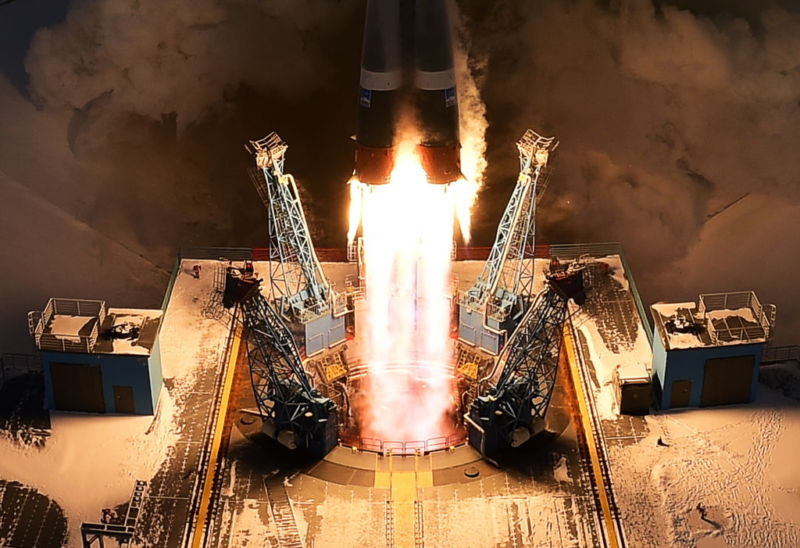The second launch
from Russia's new
spaceport has
failed
from Russia's new
spaceport has
failed
Ars Technica
2 hours ago
Misfire —
The second launch from Russia’s new spaceport has failed
Human error may have been involved.

Enlarge /
A Soyuz 2.1b rocket booster with a Frigate upper stage block, the
Meteor-M 2-1 meteorological satellite and 18 small satellites launched
from the Vostochny Cosmodrome.
Yuri Smityuk/TASS
According to Russian media reports, the Fregat upper stage separated from the rocket about 10 minutes after launch, but then something went wrong. At least one of the two firings of the Fregat stage, which is used to insert satellites into their designated orbits, apparently did not happen. Russian space journalist Anatoly Zak reports that human error may have been involved, with an errant pre-programmed flight sequence. Roscosmos has since lost contact with the satellite.
This failure is troublesome for the Russian space program for at least a couple of reasons. This is the fourth failure of the versatile Fregat space tug, which has been in service for about two decades. All of the problems have occurred since 2009, when there have been problems with flight data, third-stage failures, and control system failures. In each of the cases, the satellite did not reach its desired orbit.
ARS TRENDING VIDEO
Xbox responds to fans' biggest feature requests
Russia has a long, storied, and largely successful space program. But this latest failure is likely to only add to concerns in the global aerospace industry about deleterious effects on Russian spaceflight from low funding and mismanagement of the Russian space agency. As the country's heritage rockets and upper stages continue to age, the concern is that the failure rate will increase.
No comments:
Post a Comment